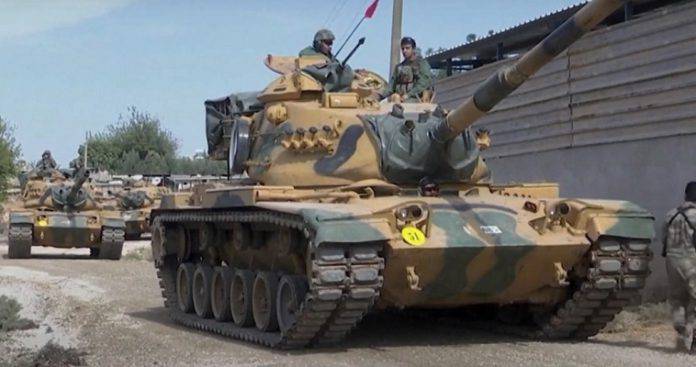Alexandros Tarkas: Why the demand for an arms embargo on Turkey is hopeless
22/10/2020
The Prime Minister’s belated proposal to the European Council for a “European initiative, or possibly initiatives at Member State level that no longer allows arms sales to Turkey” is theoretically promising.”I think my position is absolutely understandable,”.the Greek PM added
However, apart from the propaganda embellishments for internal political purposes, the reality is very different for three reasons. The first is that, as has been shown in many European Councils for a number of years, the hasty enthusiasm for “understanding” a Greek position does not in any way mean launching procedures for its acceptance, and not even simply postponing it for future examination.
A typical example is Konstantinos Mitsotakis who was celebrating a solution to the Skopje issue after the Lisbon summit in June 1992. Also, George Papandreou was applauded in the Council of Ministers by its standing members in July 2011, after an extraordinary European Council, with the supposed Memorandum of Understanding.
Similarly, the Samaras government, after the December 2012 summit, considered that it would soon receive the repayments from the Greek bonds held by the ECB. Alexis Tsipras hoped that the Council of March 2015 would provide an immediate solution to the financial gap of the Greek economy. Developments and leaders of other EU states and governments have refuted Greek certainties.
What did the prime minister mean?
The second reason for doubt is that the proposal of Kyriakos Mitsotakis (unless it is a misstatement, which, however, is not common for this particular politician) refers only to future sales. This is contrary, then, to yesterday’s letters from Foreign Minister Nikos Dendias to his counterparts in Germany, Spain, and Italy, which demand the suspension of planned exports of specific systems and equipment.
The Prime Minister’s statement, therefore, did not concern the ongoing contracts of Turkey and the forthcoming deliveries from the European defense industries. The phrase “no longer allow” was not equivalent to the current and active demand of Athens to Berlin not to deliver to Ankara the six U-214 German submarines (of the same class as the state-of-the-art Greek subs) that will change the balance of power in the Aegean and Mediterranean and already worry the Greek GEETHA.
If the Greek government formally requests the cessation of future sales, the EU may adopt a general position, but it will not be able to restrict bilateral member states’ trade with Turkey. Kyriakos Mitsotakis’ reference to the US decision to delay the delivery of F-35s to Turkey, in response to the supply of Russian S-400s, is not a matter comparable to either EU members or the US embargo of 1975-78.
German evasion of the arms embargo
The third reason for very limited optimism, as European defense industry leaders and external advisers say, is that the Greek government, several weeks before the Dendias letters, had unsuccessfully targeted the German government on the issue of the submarines. Berlin’s response was vague, with evasions of the need for consultation within the German government and relevant parliamentary committees.
The same well-informed sources emphasize that, in addition to the well-known tactics of Chancellor Angela Merkel and Foreign Minister Haiko Maas to avoid actions that would disrupt relations with Turkey and drive it away from Europe, the members of the Bundestag also do not want the suspension of arms exports. In fact, there is an oxymoron for many Christian Democrat MPs, who sincerely and fanatically oppose Turkey’s approach to Europe, not wanting to ban or suspend German arms exports for economic reasons.
It is stated, among other things, that the cancellation of the submarine program, whose value reaches 5.4 billion euros, would cause an internal financial problem. It should be noted that 64% of the cost of shipbuilding, testing and first years of technical support is covered by German state guarantees (the Hermesdeckungen) which will be forfeited.
Fortunately, on the other hand, there are individual elements that may cause obstacles, for some time, to the strengthening of the Turkish submarine fleet. The work of repairing the pending and equipment (the so-called outfitting) of the – almost ready – first submarine in the shipyards of ThyssenKrupp and the necessary tests at sea, may be delayed for some months. The agreement for the construction (or assembly of systems) of the other five in Turkey has not yet – unknown why – been finalized.





